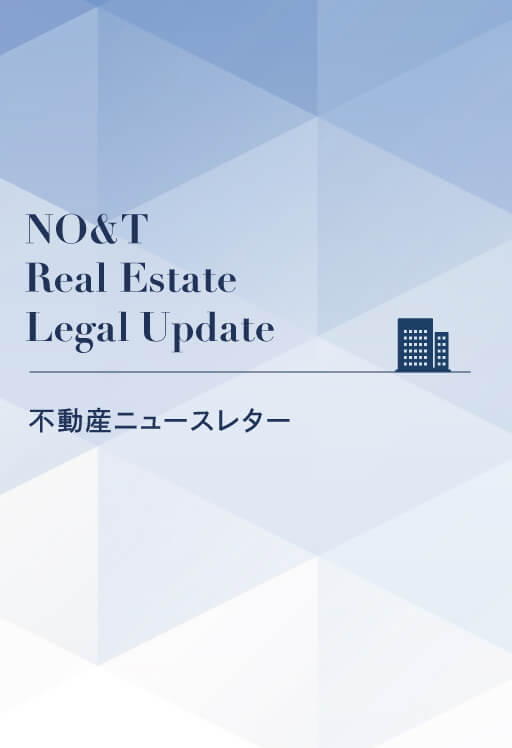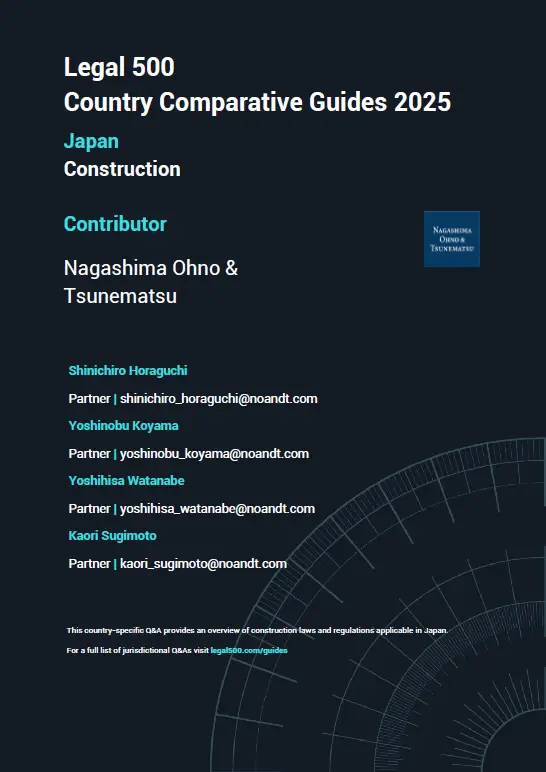
NO&T Asia Legal Review
On 28 November 2023, the Law on Real-Estate Business 2023 (the “LREB 2023“) has been adopted. The new law will be enforceable from 01 January 2025 and replace the current Law on Real-Estate Business 2014 (“LREB 2014“).
Set out below is a summary of the notable changes under LREB 2023.
LREB 2014 generally regulates the forms and scope of real-estate business for all foreign-invested enterprises (“FIEs“) regardless of the shares of foreign investment. On the other hand, LREB 2023 separates foreign-invested enterprises into two types: (i) FIEs, which are subject to the conditions and requirements under Law on Investment 2020 (“LOI 2020”); (ii) FIEs, which do not fall into (i) above, and accordingly regulates the business scope for each category.
Although not stated clearly, it can be assumed that LREB 2023 refers to FIEs stipulated in Article 23 of LOI 2020. Accordingly, FIEs of type (i) include:
Under LREB 2023, FIEs of type (i) can conduct real-estate business with the same form and scope as Vietnamese people residing abroad but not holding Vietnamese nationality. The difference between LREB 2023 and LREB 2014 is that under LREB 2023, these FIEs are permitted to build technical infrastructure to transfer, lease, or sublease land use rights that already have technical infrastructure, while under LREB 2014, FIEs can only invest in housing and construction works.
The forms and scope of real-estate business that the FIEs of type (ii) can conduct are the same as domestic enterprises. In particular, these FIEs are allowed to buy houses or construction works for resale, lease, or lease-purchase. Under LREB 2014, all FIEs are not allowed to do such transactions because Vietnam only encourages FIEs to invest as real-estate developers and real-estate service providers. This notable change creates more opportunities for foreign investors in Vietnam’s real-estate business.
To elucidate, the forms and scope of business conducted by FIEs in housing, construction works, and land use rights that already has infrastructure, etc., under LREB 2023 in comparison with LREB 2014 are as follows:
| Forms and scope of business | LREB 2014 | LREB 2023 | |
|---|---|---|---|
| All FIEs | FIEs subject to the conditions and requirements under Law on Investment | Other FIEs | |
| 1. Buy or enter into lease-purchase of houses, construction works for resale, lease, or lease-purchase | not allowed | not allowed | allowed |
| 2. Lease houses or construction works for sublease | allowed | allowed | allowed |
| 3. Invest in the construction of houses or construction works for sale, lease or lease-purchase according to forms, purpose and term of land use as prescribed by the laws (including cases of construction on land located in industrial parks, industrial complexes, export-processing zones, hi-tech zones, or economic zones) | allowed | allowed | allowed |
| 4. Receive transfer of entire or partial real-estate project for continuing construction and trading | allowed | allowed | allowed |
| 5. Receive transfer of rights to use land that already has infrastructure within real-estate projects for further transfer or lease; | not allowed | not allowed | allowed |
| 6. Lease rights to use land that already has infrastructure within real-estate projects for sublease | not allowed | not allowed | allowed |
| 7. Invest in the construction of infrastructure facilities within real-estate projects for transfer, lease or sublease of rights to use land that already has infrastructure | not allowed | allowed | allowed |
Same with LREB 2014, except for some instances, any organization or individual engaged in real-estate business must establish an enterprise or cooperative (“real-estate enterprises”). LREB 2023 adds some conditions for real-estate enterprises as follows:
In respect of payments to be made by customers for houses or construction works that are under construction (“off-plan real-estate”), LREB 2014 only regulates the payment of real-estate contract value (i.e., the selling price or lease price of the off-plan real-estate shall be paid in installments, the initial installment not exceeding 30% of the contract value). As such, LREB 2014 lacks regulations on transactions that occur before signing the contract, such as accepting deposits from customers, and only regulates payment mechanics from the time of signing the real-estate business contract. Therefore, many developers conclude deposit agreements based on the provisions of the Civil Code and request large deposits because there is no limitation on the amount of deposit under the Civil Code.
However, regulation on this matter is stricter according to LREB 2023. First, to protect customers buying or leasing an off-plan real-estate, LREB 2023 stipulates that real-estate project developers are only allowed to accept a deposit of no more than 5% of the selling price or lease price for houses, construction works, or construction floor areas of construction works from the customers. The deposit is only collected when the houses or construction works are qualified to be put on the market as per the provisions of LREB. The deposit agreements must clearly state the selling price, lease-purchase price of the houses, the construction works, and the construction floor areas. Moreover, LREB 2023 requires that the deposit must be included in the initial installment, which must not exceed 30% of the real-estate contract value.
The regulation on deposit limits and time of deposit receipt as above ensures that the nature of the deposit is not for the purpose of raising capital. It is expected to identify real-estate developers who possess authentic abilities and have a steady financial foundation.
Secondly, under LREB 2023, developers cannot authorize other parties to enter into a deposit contract. This provision aims to address situations where individuals suffer losses when buying real-estate through intermediaries or real-estate businesses. Furthermore, this regulation can address issues related to determining the responsible party and limiting instances of avoiding responsibilities in case investors delegate responsibilities to multiple parties. This regulation also applies to the business of existing houses or construction works.
LREB 2023 retains the requirement that the real-estate project developers must obtain a bank guarantee for the developer’s financial obligations to customers in case the developer fails to hand over the house as committed, before selling or leasing an off-plan house. However, for the customers, LREB 2023 now allows them to choose whether to have such a guarantee when signing the contract of purchase and sale or lease-purchase of such house.
In fact, the developers must pay the guaranteed fee to the banks in advance, and they then add this amount to the selling price, which makes the price higher. However, with the new regulations, customers can sign a purchase contract without a bank guarantee and receive a discount on the purchase price.
A new regulation in LREB 2023 requires the developer to furnish a bank guarantee to the customer within ten days of signing the contract, or as mutually agreed upon by the parties. Furthermore, the developer is entitled to receive payment only after the customer has received a letter of guarantee.
LREB 2014 only requests the real-estate enterprise to publish general information about the real-estate before putting it on the market. Under LREB 2023 the developer must publish information on (i) Real-estate projects, (ii) Off-plan houses and construction works, (iii) Existing houses or construction works, and (iv) Land use rights with technical infrastructure in real-estate projects. LREB 2023 regulates every detail on the information that needs to be publicized.
The above information must be public not only on the website of the real-estate enterprise but also on the information system on the housing and real-estate market.
LREB 2023 clarifies that only real-estate project developers and real-estate enterprises need to use sample real-estate business contracts. This regulation ended the controversy about the mandatory application of contract templates for other organizations and individuals under Decree 02/2022/ND-CP. Accordingly, when doing real-estate business contracts or real-estate service contracts, other organizations and individuals are only required to comply with the provisions of the LREB and the Civil Code.
The new LREB is expected to resolve the problems and deficiencies of the current law, ensure transparency and security of the real-estate market, and be able to cope with problems arising from the rapid development of the real-estate market in Vietnam.
This newsletter is given as general information for reference purposes only and therefore does not constitute our firm’s legal advice. Any opinion stated in this newsletter is a personal view of the author(s) and not our firm’s official view. For any specific matter or legal issue, please do not rely on this newsletter but make sure to consult a legal adviser. We would be delighted to answer your questions, if any.


Makoto Saito, Shinichiro Horaguchi, Yoshihisa Watanabe, Ramsay Randall (Co-author)


Makoto Saito, Shinichiro Horaguchi, Yoshihisa Watanabe, Ramsay Randall (Co-author)


Takehito Matsumoto


Takashi Itokawa, Takahiro Kitagawa (Co-author)


Makoto Saito, Shinichiro Horaguchi, Yoshihisa Watanabe, Ramsay Randall (Co-author)


Makoto Saito, Shinichiro Horaguchi, Yoshihisa Watanabe, Ramsay Randall (Co-author)


(April 2025)
Shinichiro Horaguchi, Yoshinobu Koyama, Yoshihisa Watanabe, Kaori Sugimoto (Co-author)


(December 2024)
Mami Ikebukuro, Kenji Utsumi, Makoto Saito, Shinichiro Horaguchi, Yoshihisa Watanabe (Co-author)


Patricia O. Ko


Ngoc Hoang


Yuan Yao Lee


Chattong Sunthorn-opas, Thunsinee Sungmongkol (Co-author)


Patricia O. Ko


Ngoc Hoang


Yuan Yao Lee


Chattong Sunthorn-opas, Thunsinee Sungmongkol (Co-author)


Ngoc Hoang


Long Nguyen


Nga Tran


Hoai Tran